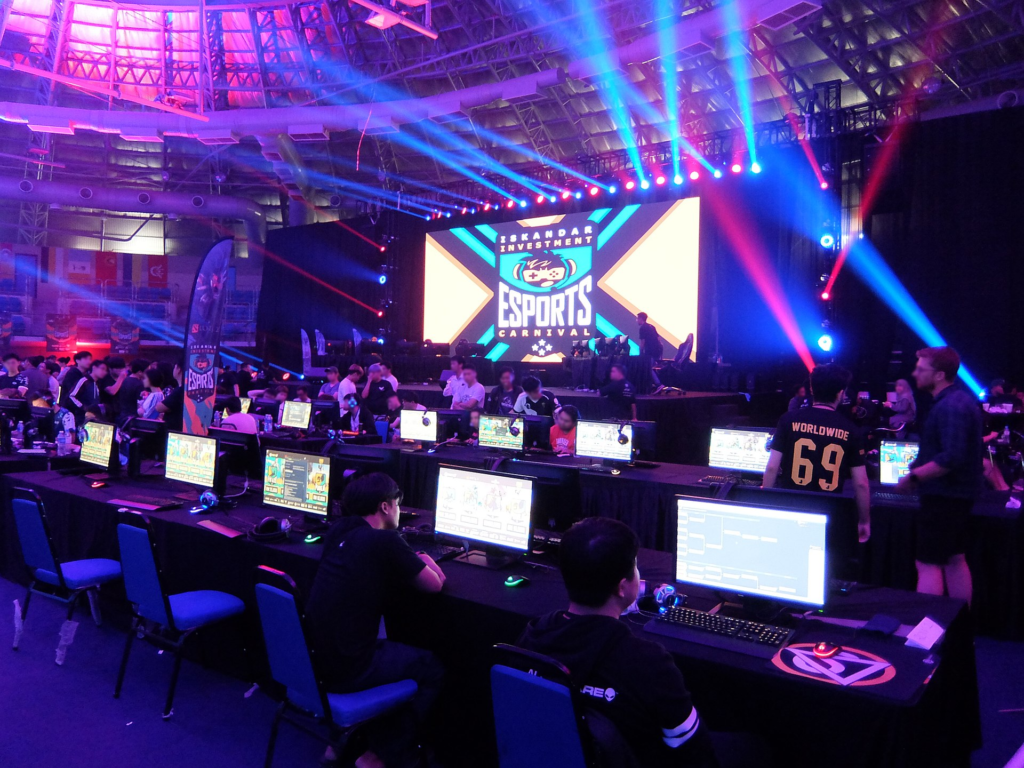It seems that these two worlds — crypto and gaming — are destined to collide.
Rick Yang, a partner at venture capital firm NEA, recently described esports as “the mainstreaming of gaming.”[It’s] the pop culture instantiation of gaming versus the pure idea of these players becoming professionals to compete at the highest levels,” he said. But “mainstreaming” or not, Mr. Yang hit a vital point: esports is growing rapidly–and it’s not showing signs of slowing down anytime soon.

Indeed, global esports viewers are more likely to rise as high as 26.6 million in 2021, a year-over-year increase of 11.4 percent. The amount of money in esports is on track to surpass $1 billion in revenue for the first time this year; by 2022, the expected revenue growth is $1.8 billion.
Simultaneously, the rise of crypto and blockchain technology in gaming has also become apparent. In-game currencies are increasingly being created and issued on blockchains; unique gaming objects are traded and sold as non-fungible tokens NFTs.
Crypto and gaming: apply the principles of decentralization to esports
The principles of decentralization have increased in the financial world, leading to the continuous creation of a flourishing decentralized finance (DeFI) ecosystem. Each of these platforms eliminates third-party intermediaries from financial services–for example. DeFi lending platforms eliminate the need fo=r banks or centralized companies.APRs and other fees collected by the platform are distributed directly to users.
Centralized corporations are currently operating and controlling the esports world. These companies are responsible for creating and maintaining e-sporting games and platforms, and they also orchestrate tournaments and meetups. Under this model, companies are practically the only industry participants who receive financial rewards for their time and effort.
E-sports players and audience members often do not receive any financial benefits for their participation. In fact, they must frequently pay for their rights to play and spectate e-sporting games by applying decentralization and blockchain technology principles to e-sports. Innovators can create gaming platforms and ecosystems that distribute rewards to those who play, view, and otherwise participate in the esports experience on amateur and professional levels.
3. GameStop NFT$GME is attempting to bridge traditional commerce with the world of blockchain and NFTs
— croissant (@CroissantEth) August 20, 2021
We all know blockchain + gaming go hand in hand…
So it will be very interesting to see how GameStop’s partnerships with Hasbro, Xbox, & many Esports teams plays out in this https://t.co/YaSgf4NpDa pic.twitter.com/HUatNsE3wh
What does the application of Blockchain to esports look like on a practical level?
Some analysts believe that the potential to revolutionize esports and other video games could make gaming blockchain’s killer-use case. Likewise, decentralized, permissionless peer-to-peer networks could be just as revolutionary for the gaming industry as the introduction of the home console was in the 1980s.
Crypto and gaming: some applicable ways of Blockchain to e-sports
Crypto-powered-gaming streaming services
Streaming is an integral part of the e-sports universe. Just like traditional sports fans flock to stadiums and friends’ houses to “watch the game’. And e-sports fans love to watch their favorite gamers compete and win in virtual sporting worlds.
Combining e-sports streaming with Blockchain can create viewing experiences where gamers and audience members can get rewards for their participation. For example, peer-to-peer video streaming network Theta rewards its users for watching streamed content, as well as for unused bandwidth.
Unique, in-game items as NFTs
Similar to how non-fungible tokens usage creates tradable items in other virtual worlds, NFTs can represent virtual jerseys, balls, and other collectible memorabilia in e-sporting spheres. E-sports NFTs can eventually mirror existing tokens in the traditional sports industry. Tokenized sports cards and game moments have sold hundreds of thousands of dollars on platforms like NBA top shot and OpenSea.
Gameplay matchmaking services
Just like traditional sports, participation in e-sports games often requires players to assemble their own teams. Algorithmic matchmaking services have been created to help players match with one another. When individuals or teams search for a game, matchmaking systems examine their gameplaying statistics to link them with similar players.
There is a match when the team has the correct number of players, and the game can begin. Services like this may seem trivial, but they can fetch a pretty penny–some centralized matchmaking services process over $100 million in monthly transactions. Tapping into this part of the e-sports universe with a decentralized service could be highly rewarding for users.
E-sports game development
Decentralization can also reinvent the world of e-sports on the development level. Independent e-sports developers can join decentralized autonomous organizations (DAOs)–independent, blockchain-based organizations that allow them to collaborate and build with other creators in the space. This process could potentially eliminate the need for centralized gaming studios and agencies.
Like many other aspects of decentralized technology, it will likely be years before the full potential of Blockchain in e-sports comes to fruition. Today, players, investors, and creators have a unique opportunity to enter the world of decentralized e-sports in its earliest stages. Watch this space.

